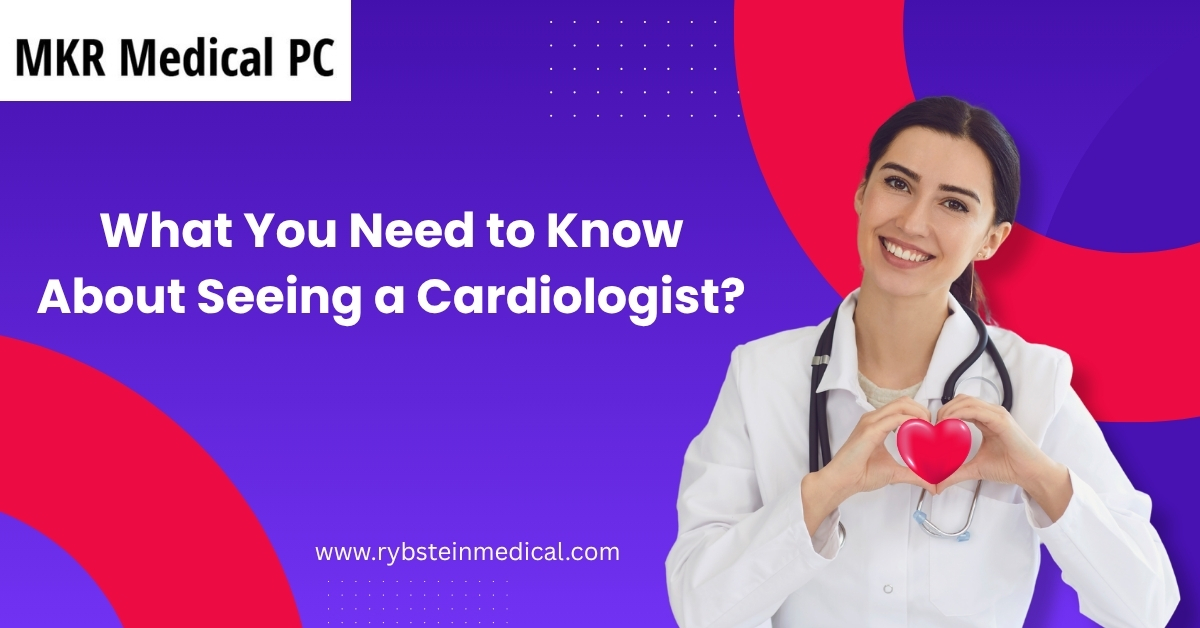So, you’re here because you’ve been thinking about your heart lately. Maybe your doctor mentioned something about high blood pressure. Maybe you felt your heart race a little too fast during a walk. Or maybe you’re just being smart and proactive about your health. Either way—good on you for taking that step.
Let’s sit down, grab a coffee (if you’re worried!), and chat about something a lot of people ignore: seeing a cardiologist in New York until it’s too late for your heart health!
Who Even Needs a Cardiologist? (Spoiler: It Might Be You)
Now, we get it. The word “cardiologist” can sound a bit serious. It can make you imagine a white coat, big machines, and scary tests, right? But let’s clear the air a bit. A cardiologist is just a heart doctor—someone who specializes in understanding how your heart and blood vessels work (or don’t work) and what we can do to keep everything pumping smoothly.
You might need to see one if:
- You’ve had chest pain, shortness of breath, or heart palpitations
- Your primary doctor thinks something’s up with your heart.
- You have high blood pressure or high cholesterol.
- There’s a family history of heart disease.
- You’ve had previous heart surgery or heart-related issues.
- You’re just feeling off and want answers.
If any of that feels familiar, you’re not alone.
Let’s Break It Down: What Does He Actually Do?
You might be wondering, “Okay, but what happens when I go see a cardiologist in Brooklyn?” No, you’re not going to walk into a room and immediately be hooked up to wires like in a sci-fi movie.
Here’s what usually goes down:
- They talk to you. They’ll ask about your symptoms, your lifestyle, your family history, what meds you’re on, and more.
- They listen. They’ll listen to your heart with a stethoscope, sure—but they’ll also hear out your worries.
- They test. Depending on what’s going on, they may order tests like an EKG (to check your heart’s electrical rhythm), an echocardiogram (to see your heart beating on screen), stress tests (treadmill time!), or blood work.
- They guide. Once they know what’s up, they’ll talk you through your options. Meds? Lifestyle changes? Maybe more tests? Whatever it is, they’ll help you make a plan.
And the best part? You’re not doing it alone.
What Kinds of Issues Do Cardiologists Help With?
Let’s not get too deep into the weeds, but here are a few of the common things cardiologists help people like you with:
- High Blood Pressure (Hypertension): Often called the “silent killer” because it can cause significant damage before you feel a thing.
- Coronary Artery Disease: This is when your arteries are narrowed or blocked, often leading to chest pain or even a heart attack.
- Heart Failure: Despite how it sounds, this doesn’t mean your heart has stopped—it just isn’t pumping as well as it should.
- Arrhythmias: That weird flutter or pounding you feel? It could be an irregular heartbeat.
- Cholesterol Management: Too much LDL (“bad cholesterol”) can clog your arteries, but a cardiologist can help bring those numbers down.
- Post-Heart Attack Care: If you’ve already had one, a cardiologist is your go-to for preventing another.
Honestly, they deal with anything heart-related, from the serious stuff to just helping you get back on track.
But What If I’m Feeling Fine? Should I Still See a Cardiologist in New York?
If you’re not having any symptoms and your doctor hasn’t referred you, you may not need to see a cardiologist. But let’s not forget—prevention is everything. If you’ve got risk factors like a family history of heart disease, diabetes, obesity, or if you’re a smoker, a visit to a cardiologist might be a smart move.
Think of it like going to the mechanic before your check engine light comes on. It’s way easier (and cheaper) to fix things early.
What Can You Do Before You Even Get to a Cardiologist?
We’re not just talking about appointments and tests. There’s so much you can do in your daily life to give your heart the love it deserves. Here’s where we all need to get real:
- Move Your Body. You don’t need to become a gym rat, but 30 minutes of walking a day? That’s doable.
- Eat Smart. More greens, fewer greasy drive-thru moments. (We know, easier said than done.)
- Watch the Salt. High sodium levels are associated with high blood pressure.
- Manage Stress. Your heart feels it when your mind is a mess.
- Quit Smoking. It’s the single best thing you can do for your heart.
- Know Your Numbers. Blood pressure, cholesterol, glucose—keep track of those.
And if that list overwhelms you, start with just one thing today. Small changes add up fast.
What to Expect at Your First Appointment
Feeling nervous? Normal.
Most first-time cardiology appointments take about 30 to 60 minutes. You’ll likely:
- Fill out forms about your health history
- Get your blood pressure, weight, and maybe an EKG done.
- Chat with the cardiologist about your symptoms and goals.
- Walk away with either peace of mind or a game plan (or both!)
Wear comfy clothes, bring a list of your medications, and maybe jot down any symptoms or questions you have beforehand. We’ve all been there—you think of the good questions after the appointment, right?
Your Heart = Your Life. Don’t Wait.
Look, we all put things off. Oil changes. Dental checkups. That junk drawer that’s now a junk cabinet. But your heart? That one deserves attention now, not later.
Even if you feel “fine,” even if you think you’re “too young,” even if you’re scared about what they might find—taking action is always the better move. No one ever regrets catching a problem early. They only regret ignoring it.
Wrapping It All Up: What We Want You to Remember
Your heart’s been working nonstop since the day you were born. Isn’t that wild to think about? No breaks. No vacation. Just steady, quiet effort to keep you living, loving, laughing, and chasing whatever it is that drives you.
Seeing a cardiologist in Brooklyn doesn’t mean something’s wrong—it just means you care enough to get checked out. And what’s that? That’s power!
So if your body’s whispering, listen. If your doctor recommends it, follow through. If your gut says, “Let’s just make sure,”—do it.
You deserve to feel strong. To feel safe. To feel ready for whatever life brings!
And that all starts with a healthy heart.



